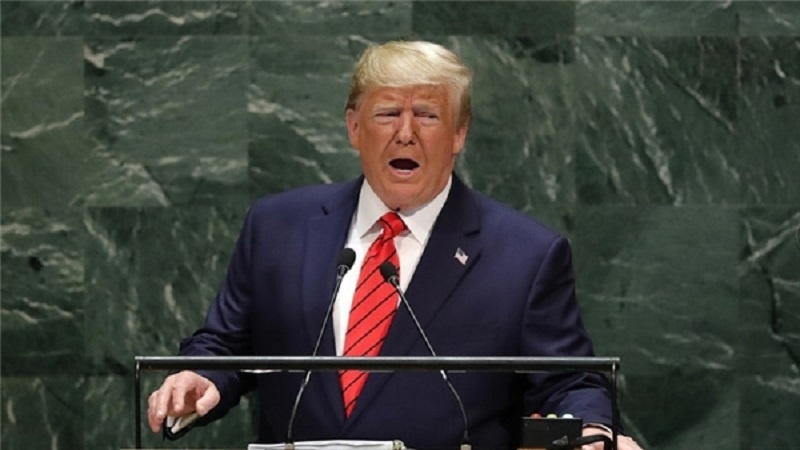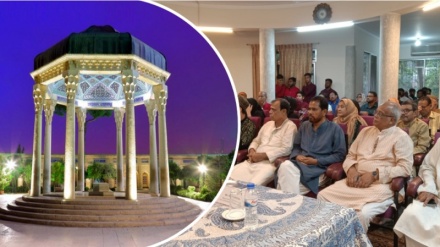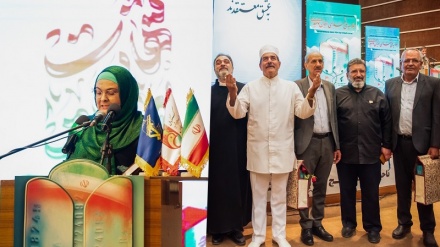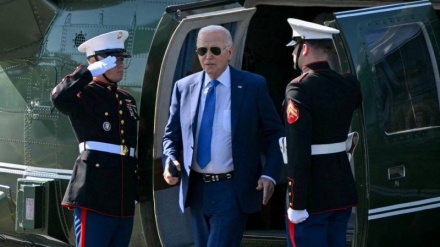Why UN doesn’t like US
US President Donald Trump's ‘America First’ concept contradicts the values of the United Nations, denying the broad consensus of the international community to pursue common development through cooperation and to solve global problems through shared responsibility.
This contrast reflects the limitation of Trump's diplomatic philosophy. The concept of ‘America First’ has internal contradictions and cannot solve the vast majority of problems in today's world.
The following is an article in this regard by staff writers of Iran’s English language website of Fars news agency under the heading “Why UN doesn’t like US.”
On September 26, 2019, US President Donald Trump delivered a speech at the UN General Assembly, once again preaching the concept of ‘America First’ and denying the significance of globalization and international law.
Trump's third address to the United Nations General Assembly was an unmistakably nationalist one, with reiterating the theme of his foreign policy doctrine, that all nations should be looking inward and considering their own interests first. He focused more on criticizing other nations that he claims treat the US unfairly than on uniting nations around principles of democracy and humanity.
Trump hit on each of his favorite themes – unfair trade, imbalanced defense spending, illegal immigration, and socialism - reading from the teleprompter in a somewhat subdued manner. He claimed, "The future does not belong to globalists. The future belongs to patriots."
At any rate, Trump likes the UN General Assembly platform. On the one hand, the UN headquarters is located in New York, and Trump can go home when he visits the UN, enjoying the owner's treatment in the Trump Tower in Manhattan. On the other hand, he likes to speak in front of many audiences. At the UN General Assembly, politicians from all countries became Trump's audience.
On the contrary, the United Nations does not like the US under Donald Trump. The Trump administration has withdrawn from several UN agencies and international treaties such as climate change and medium-range missiles. In addition, the United States owes more than a billion US dollars in contributions to the United Nations.
Trump's ‘America First’ concept contradicts the values of the United Nations, denying the broad consensus of the international community to pursue common development through cooperation and to solve global problems through shared responsibility. This contrast reflects the limitation of Trump's diplomatic philosophy. The concept of ‘America First’ has internal contradictions and cannot solve the vast majority of problems in today's world.
One of the contradictions is that the US hopes that countries will capitulate under pressure and adopt a similar concept of isolationism and reduce the supply of public goods to the international community. Peace does not occur naturally. In order to maintain peace, major powers need to assume certain international responsibilities and provide assistance to vulnerable countries to help them solve the root causes of terrorism and extremism.
The reduction in the supply of public safety products will make it easier for some countries to become a source of global turmoil and attract anti-civilization forces to establish bases in these countries. This change may not be apparent immediately. But in the near future, we may see the rise of new terrorist organizations and transnational criminal groups.
Another contradiction is that the US does not want to be bound by rules and treaties, but requires other countries to abide by the rules. The US walked out of the Iran nuclear deal but still expects Islamic Republic to remain in the UN-endorsed treaty. The concept of ‘America First’ is a category of power politics.
Trump believes that the strength of the United States is the main reliance on its security. Once there are rules that limit US power or unfair for US interests, the US government will seek to revise these rules. At the same time, the Trump administration does not allow other countries to propose changes to existing international rules. This makes other countries feel like they are being unfairly treated and slows down the evolution of international law.
The Trump administration advocates dialogue and dignity, but tends to use unjustified means such as maximum pressure to resolve the contradiction between Iran and the US. In his speech, Trump said that he is trying to talk and listen to everyone, including North Korea, Iran and other leaders of countries that have long disagreed with the US. The fact is that the Trump administration has imposed unilateral economic sanctions, cyber-attacks and military threats against these countries, which have seriously affected their ordinary citizens.
In the face of such double standards and conflicts, these countries are questioning the US's true intentions and its credibility to fulfill its commitments. Other countries do not like this disgraceful strategy to resolve differences. They believe that they may also become the object of blackmail by the US. Accepting US blackmail will not only hurt the interests of these countries, but also expose their governments to enormous social pressure. No wonder Iran says it will only talk to the US once sanctions are lifted.
Meanwhile, in his speech delivered at the 74th UN General Assembly President Hassan Rouhani has proposed a regional security plan for the Persian Gulf, titled the "Hormuz Peace Initiative.”
The idea entails the concerned countries cooperating to ensure security in the Persian Gulf and Sea of Oman, though importantly excluding the US participation which is stirring up regional tensions.
Washington blamed Tehran for the mysterious tanker attacks that occurred earlier in the summer and the Ansarullah forces’ recent drone strike against the world's largest oil processing facility in Saudi Arabia, which the US then exploited as the justification for bolstering its military presence in the Persian Gulf in order to “milk” Saudi Arabia and intimidate Iran into undertaking political concessions in exchange for sanctions relief.
As part of its efforts, the US has struggled to form an international coalition for patrolling the region's waterways and ensuring so-called "freedom of navigation," a move that Iran has labeled as provocative and intended to actually bully it. It's therefore imperative for the regional nations to take security into their own hands instead of relying on self-interested outsiders like the US which have over four decades of experience in trying to destabilize Iran after its 1979 Islamic Revolution.
After all, it's only sensible for one of the most direct regional stakeholders themselves to officially suggest something of the sort in order to give it the momentum needed to be taken seriously by its counterparts and not be regarded as an entirely extra-regional recommendation. It therefore wouldn't be surprising if Iran's proposal includes regionally relevant details for facilitating its eventual entry into practice.
Iran's "Hormuz Peace Initiative" is timely and much needed since global economic security – already threatened by the US trade war – is largely dependent on stability in the energy-rich Persian Gulf, which has been undermined as a result of recent events there and America's attempts to pin the blame on Iran without any evidence. Considering the US provocative actions and rhetoric, it cannot be trusted as a reliable partner for ensuring this, hence why it's the need of the hour for the regional countries to cooperate.
Among regional countries, two Muslim nations of Iran and Saudi Arabia share partnerships with China and are greatly increasing their economic engagement with it, which places the People's Republic of China in a privileged position to help facilitate peaceful dialogue if called upon by both parties to do so.
Even if they don't request this, there's no ignoring that they each have shared interests in stabilizing the Persian Gulf in order to maximize the benefits they stand to receive from the Belt and Road Initiative (BRI).
Iran is regarded as one of the most promising emerging markets in the world given its pivotal transit location along the South Eurasian Rimland, educated population, and natural resource wealth, while Saudi Arabia is in the midst of its "Vision 2030" systemic transition to a post-oil economy.
Without peace and security in the region, their future developmental plans – which are being advanced through differing degrees of foreign investment – are endangered, so now it's the time for them to finally take collective security seriously - without the US.
The majority of peace-loving nations must choose dialogue, support global governance, and recognize that only multilateral cooperation and deliberations can solve the world’s problems of politics and trade, not Trump’s ‘America First’ policy. They must be careful to avoid the proliferation of unilateral standards and nationalistic practices by certain sanction-happy, trade-war happy actors. It sends the opposite message.
ME



